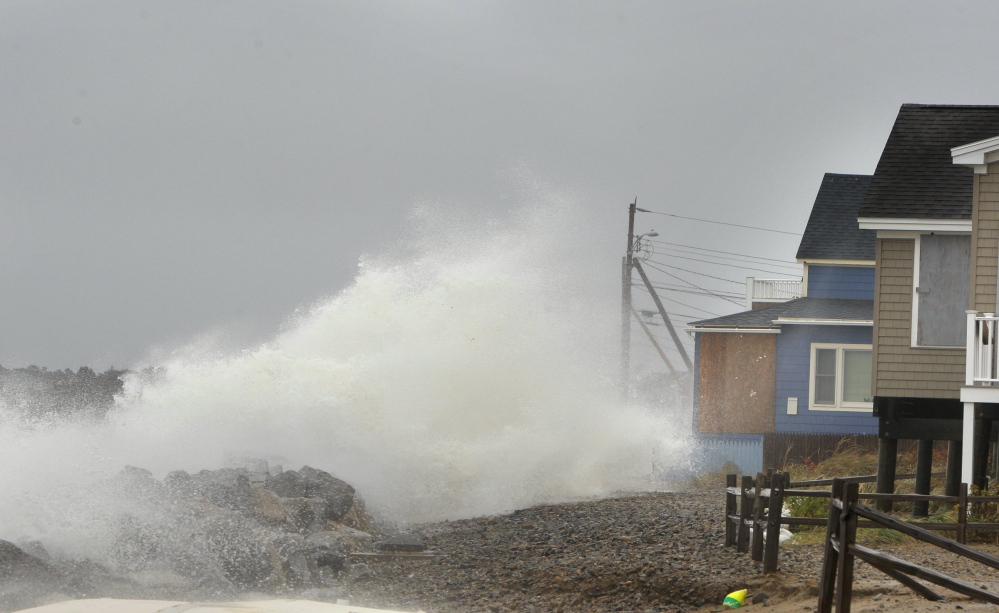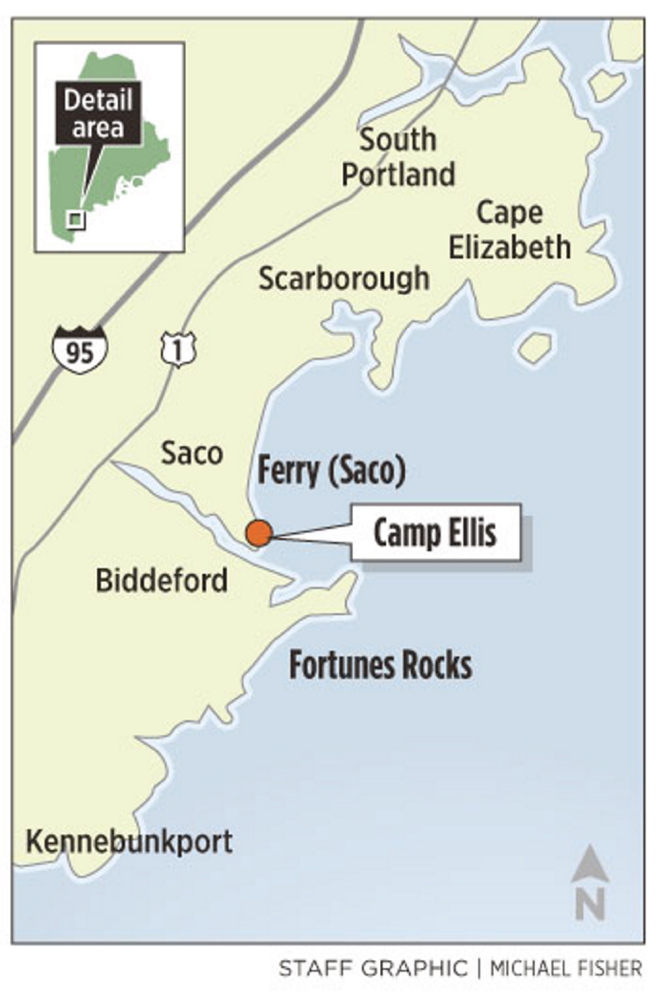Two federal agencies downplayed fears Thursday that a $27 million beach restoration project at Camp Ellis in Saco will be delayed because of concerns about wildlife.
The U.S. Army Corps of Engineers and the U.S. Fish and Wildlife Service issued a joint statement saying they are close to resolving environmental issues that local officials feared could hold up the long-awaited beach erosion mitigation project.
The Fish and Wildlife Service had questioned how the project would affect endangered and threatened birds, including the piping plover. Property owners and city officials, fearing delays, asked the governor for support in moving the project forward.
Federal officials met Wednesday and, according to the statement, made “exceptional progress toward the timely conclusion” of a consultation required under the Endangered Species Act. The Fish and Wildlife Service said it is now confident that it will be able to concur with the corps’ determination that extending a jetty and restoring the beach will not harm two sensitive shorebird species: piping plovers and red knots.
The Army Corps of Engineers project aims to stop and reverse beach erosion caused by the jetty that was built more than a century ago at the mouth of the Saco River. Nearly 30 houses have washed into the sea since the jetty was built to open the area to commercial fishing. Virtually no sandy beach remains.
The corps plans to install a 750-foot-long spur on the jetty and replenish the beach with 360,000 cubic yards of sand.
The city of Saco would be responsible for periodic beach replenishment projects – adding sand to the beach to reverse any continuing erosion. Beach replenishment would be done outside the spring nesting season for the shorebirds.
Although there is no longer a sandy beach where plovers can nest, the plan is intended to restore a beach that could once again be used for recreation and provide wildlife habitat. Among other questions, wildlife officials had asked whether there are plans to protect birds that take up residence on the restored beach.
Saco officials are considering adopting a beach management plan, which would include safeguards for nesting birds. The federal wildlife service suggested a plan that includes restrictions on unleashed dogs and recreational activities, but city officials have indicated it may be difficult to implement a plan that meets the service’s standards.
Adrienne Bennett, spokesman for Gov. Paul LePage, said Thursday that the administration is pleased with the announcement by the federal agencies.
LePage met with Saco officials recently to discuss their concerns about the project, then sent a letter this week to U.S. Secretary of the Interior Sally Jewell inviting her to visit Camp Ellis to see the destructive effect the jetty has had on the coastline.
LePage sent photos to Jewell showing the damage caused by flooding, including houses tipping into the ocean. He criticized the Fish and Wildlife Service for slowing down the project in the interest of birds that he said are rarely seen at Camp Ellis.
“The extent of this bureaucratic fiasco and the very real damage it is doing to the people who live in this area is evident in the attached photographs that show the destruction of homes along the beach. With each passing storm, more homes and more city blocks will be destroyed,” LePage wrote.
Saco Mayor Don Pilon, who has long pushed for the project, said he could not comment on the announcement until he had spoken with agency officials.
Laura Zitske, a piping plover ecologist with Maine Audubon, said few piping plovers have been spotted near Camp Ellis because there is so little beach, but pairs regularly nest farther north in Saco and Old Orchard Beach. She said plovers have shown interest in the Camp Ellis area, and she believes they will nest there if the beach is restored.
In a related development Thursday, the Maine Senate approved a bill intended to streamline the state permitting process for future sand rejuvenation efforts at Camp Ellis and any other coastal area where federal development such as a jetty causes erosion. The bill will go to the governor for his signature.
Gillian Graham can be contacted at 791-6315 or at:
ggraham@pressherald.com
Twitter: grahamgillian
Copy the Story LinkSend questions/comments to the editors.





Success. Please wait for the page to reload. If the page does not reload within 5 seconds, please refresh the page.
Enter your email and password to access comments.
Hi, to comment on stories you must . This profile is in addition to your subscription and website login.
Already have a commenting profile? .
Invalid username/password.
Please check your email to confirm and complete your registration.
Only subscribers are eligible to post comments. Please subscribe or login first for digital access. Here’s why.
Use the form below to reset your password. When you've submitted your account email, we will send an email with a reset code.